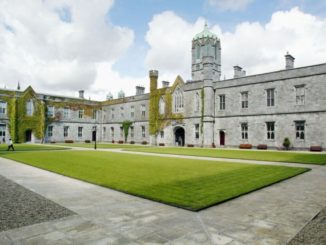
[dropcap]DCU[/dropcap] will benefit from a new multi-million fund which will encourage underrepresented students to access higher education.
2,000 students across Ireland will benefit from the €5.7 million fund, which will help new undergraduates from disadvantaged socio-economic backgrounds, first-time mature students, students with disabilities and the Traveller community.
“DCU has the oldest and largest Access program in Ireland and I believe it does a lot to ensure the students in DCU are from all backgrounds,” said Niall Behan, DCU Students’ Union President.
There are currently over 1,300 Access students studying in DCU, and 360 students entered first year in 2017.
Through the Access Programme, “an effort is made to help those who may traditionally struggle to reach third level (be) able to,” Behan said.
93 per cent of Access students who enter DCU complete third level education, according to DCU Access research.
Over the past 10 years, 92 per cent of DCU Access graduates achieved a 1st or 2nd class honours degree and from 2011 to 2017 this figure has stabilised to 97-98 per cent.
The fund of €5.7 million will be split between 17 universities and Institutes of Technology in Ireland, separated into four regional clusters.
“I believe the figure is worthwhile as it is a step in the right direction,” Behan commented on the fund. “Education is for all and unless there are efforts made the gap will widen between classes.”
“Universities are a place for everyone and all efforts should be made to ensure this holds true.”
The plan was launched by The Minister for Education and Skills, Richard Bruton T.D. and Minister of State for Higher Education, Mary Mitchell O’Connor T.D. on February 22nd.
The Action Plan for Education, which the government claim will make Ireland’s education system the best in Europe by 2026, “outlines the Government’s commitment to breaking down barriers to education and ensuring everyone has the opportunity to fulfil their full potential”, according to the HEA.
Regional clusters of higher education institutions submitted project plans to the HEA, detailing how the cluster intended to work together to improve access in their region over the next three years. DCU was among the four clusters who were successful in their proposals.
Fionnuala Walsh



